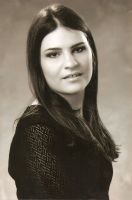Thomas Hardy, John Galsworthy and George Bernard Shaw
Hardy studied and practiced as an architect. His first novel was published in 1871 and was followed, among others, by Far from the Madding Crowd, at first thought to be by George Elliot; Tess of the D`Urbevillies, written in 1891, and Jude the Obscure (1895). After 1895, Hardy gave up novel-writing, and turned to drama and poetry. In 1908 he published The Dynasts: a Drama of the Napoleonic Wars, which is an allegorical poem rather than a play for the stage. Usually he found the material for his fiction and verse in the simple but often tragic lives of the country people of the South-West of England, where he lived quietly for the greater part of his life.
Galsworthy came of a well-to-do family and studied law at Oxford, though he did not make that his career. One of the best of his earlier novels, The Country House (1907), describes the life and feelings of the class of Englishmen that live on country estates, their love of property and the soil their dislike of change. Galsworthy, who knew and loved the English countryside, knew this class well and admired its courage and honesty. In his greatest work, The Forsyte Saga, published in its final form in 1923, he followed a typical rich upper middle-class family of the nineteenth century through three generations with much detail and a certain irony. Galsworthy`s greatest sympathy was for poor people oppressed by the rich, and not only the poor, but anyone who found the weight of public opinion against him, was sure of his pity. One of his plays, The Silver Box, shows how much more a poor person who is accused of a crime suffers than a rich person. Strife is a play about a strike at a factory and the struggle between the employers and the employees. In Loyalties, a Jew suffers from the prejudices of English society. Galsworthy also wrote short stories and essays. He received the Nobel prize in 1932 and died the following year. His last novel, Over the River, was published after his death.
Shaw was born in Dublin, but in 1876 came to London, where he worked for some time as a journalist. He belonged to a group of socialists and wrote essays and tracts for them. His first play (1892) was an attack on the rich landlords of slums. After that he wrote a very large number of plays, some dealing with social problems, such as Mrs. Warren`s Profession (prostitution), The Doctor`s Dilemma, (the medical profession), Getting Married, etc., others with historical events: Caesar and Cleopatra, The Devil`s Disciple, Saint Joan, etc., and a large number of witty comedies: Pygmalion, You Never Can Tell, etc. Man and Superman (1903), a play suggested by the story of Don Juan, contains a whole act of dialogue without action, a form of writing to which Shaw is much inclined. Two of his most noteworthy later plays are Back to Methuselah, a drama in five parts, beginning with Adam and Eve and ending in the remote future, and The Apple Cart, a study of political decadence and royal power.
